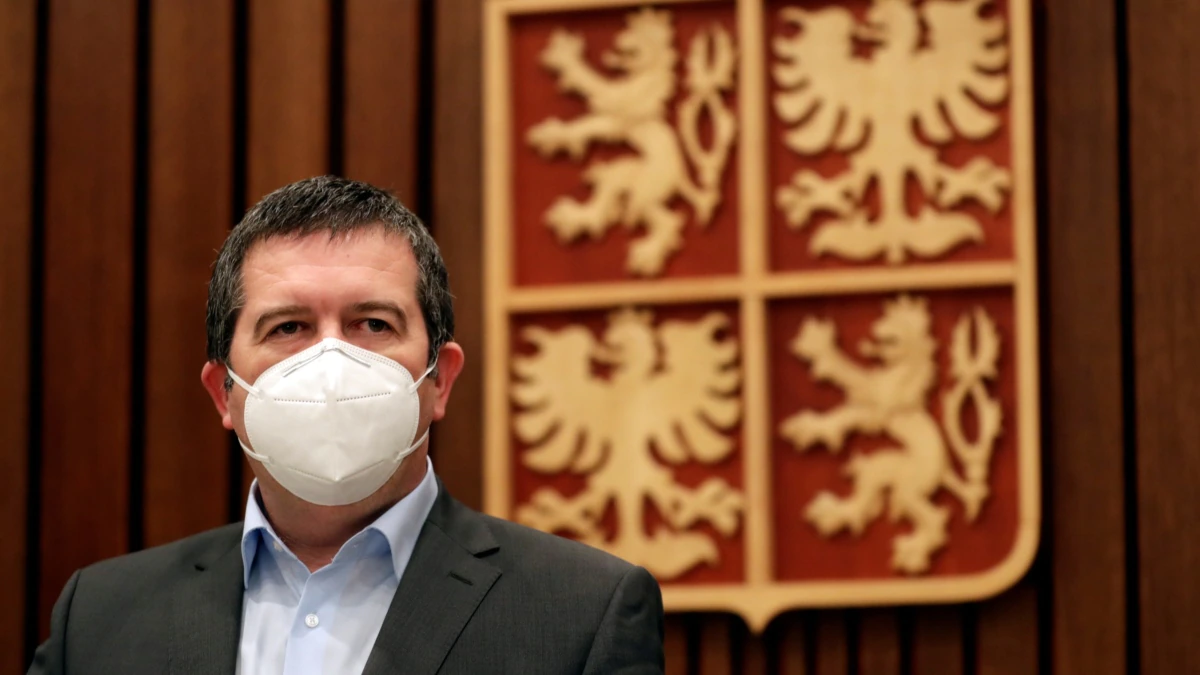
PRAGUE — The Czech Republic has called on fellow European Union and NATO members for “solidarity” action to support it amid a diplomatic spat between Prague and Moscow over Czech claims that Russian military agents were behind a deadly 2014 explosion at a Czech arms depot.
“We are calling for collective action by EU and NATO countries aimed at solidarity expulsions,” acting Foreign Minister Jan Hamacek said on April 20, a day after 18 Russian diplomats identified by Czech intelligence as being intelligence operatives left their posts in Prague, while 20 Czech Embassy employees in Moscow were ordered to leave by Moscow.
The tit-for-tat moves over the Czech allegations have triggered Prague’s biggest dispute with Russia since the 1989 end of communist rule, putting the small Central European NATO member at the center of rising tensions between Moscow and the West.
Hamacek told reporters he had summoned Russian Ambassador Aleksandr Zmeyevsky to protest what Prague views as a disproportionate response.
“It is only logical that if the Czech Republic takes further action, the Russian ambassador must be the first to hear it,” the minister said.
Kremlin spokesman Dmitry Peskov rejected Prague’s “baseless accusations” and called the Czech moves “unreasonable and harmful to bilateral relations.”
The Czech government has already decided to eliminate Russia’s state-run corporation Rosatom from a multibillion-dollar tender to build a new unit at the Dukovany nuclear power plant and to no longer consider buying the Russian-made Sputnik V vaccine against COVID-19.
Citing Czech intelligence, the government said that the GRU, Russia’s military intelligence, orchestrated the explosion in the eastern town of Vrbetice in 2014. An October 16 blast set off 50 metric tons of stored ammunition, killing two people. Two months later, another explosion of 13 tons of ammunition occurred at the same site.
In connection with the October 2014 blast, Czech police said they were seeking two suspected Russian agents also identified as suspects in the 2018 poisoning of former Russian double agent Sergei Skripal in England.
Speaking to parliament on April 20, Czech Prime Minister Andrej Babis apologized for saying the previous day that the 2014 attack was “not an act of state terrorism” but was aimed at goods belonging to a Bulgarian arms dealer.
“That was an unfortunate choice of words,” Babis told lawmakers.
The European Union on April 19 said it stood in “full support and solidarity” with the Czech Republic and expressed concern about “the repeating negative pattern of dangerous malign behavior by Russia in Europe.”
“Russia must stop with these activities, which violate well-established international principles and norms and threaten stability in Europe,” Peter Stano, the lead spokesman for the bloc’s foreign policy chief Josep Borrell, said following talks between the bloc’s foreign ministers on the matter.
Skripal, a former Russian military intelligence officer, and his daughter Yulia nearly died after being exposed to what British authorities later concluded was Novichok, a military-grade nerve agent. A British woman who accidentally came into contact with the substance died.
Britain’s NATO allies responded to the Skripal poisoning by imposing sanctions on Russia and expelling diplomats.
With reporting by Reuters, AFP, and TASS
This post was originally published on Radio Free.